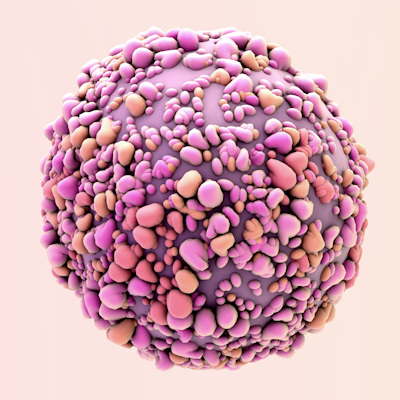June 5, 2023 -- An antibody treatment in a study helped shrink tumors in some patients with bile duct cancer. The research, published Friday in the Lancet Oncology and presented at the American Society of Clinical Oncology's 2023 annual meeting, focused on patients whose tumors produce a high amount of the HER2 protein, causing cells to multiply too quickly.
Bile duct cancer affects the biliary tract, which consists of organs and ducts that make, store, and release bile -- a fluid made in the liver and stored in the gallbladder, which aids digestion by breaking down fats into fatty acids. Bile duct cancer, an uncommon, aggressive subset of gastrointestinal cancer, includes gallbladder cancer as well as cholangiocarcinomas, which form inside or outside the liver. This silent cancer usually has no symptoms until its later stages, at which point surgery is less effective. Since few good treatment options exist, serious or fatal illness is the likely outcome. Unfortunately, bile duct cancer has been on the rise in recent decades.
The phase IIb clinical trial, known as HERIZON-BTC-01, was a global, multicenter effort to evaluate the effectiveness and safety of Zymeworks' zanidatamab, an antibody that works against the HER2 protein by binding to HER2 receptors, decreasing the amount of HER2 on cancer cells' surface and helping to slow down their runaway growth. The study enrolled 87 participants with HER2-amplified bile duct cancer that was locally advanced or had spread throughout the body, and for whom chemotherapy had stopped working. The patients received zanidatamab intravenously every two weeks.
The researchers found that the treatment effectively shrank tumors in 41% of the patients. Half of the patients responded within 1.8 months, and these responses lasted at least 12.9 months in half of the patients who responded to the drug.
Zanidatamab was well-tolerated overall. The most common treatment side effects were diarrhea in 37% of participants, and infusion-related reactions in 33% of participants, including allergic reactions, injection site pain, nausea, or flu-like symptoms. Although a small number of people had a decrease in heart function, no severe side effects were reported. The trial data support zanidatamab's potential as a targeted therapy in a subset of HER2-positive patients who are not responding to other treatments.
The researchers recommend further study to test zanidatamab's safety and effectiveness in a larger group of people. The drug is also being evaluated in combination with first-line chemotherapies, as well as for patients with other HER2-expressing tumors. The researchers said they believe that continued evaluation of HER2-targeted therapies in HER2-positive biliary tract cancers is essential for improving patient care.
"There are currently no approved therapies targeting HER2 in these cancers, and therefore there is a significant unmet medical need," co-first author Dr. James Harding, a gastrointestinal oncologist at New York's Memorial Sloan Kettering Cancer Center, said in a statement. "The study illustrates the importance of molecular profiling of these cancers to allow us to match patients to precision medicines that target the features of their individual cancer."
Copyright © 2023 scienceboard.net












